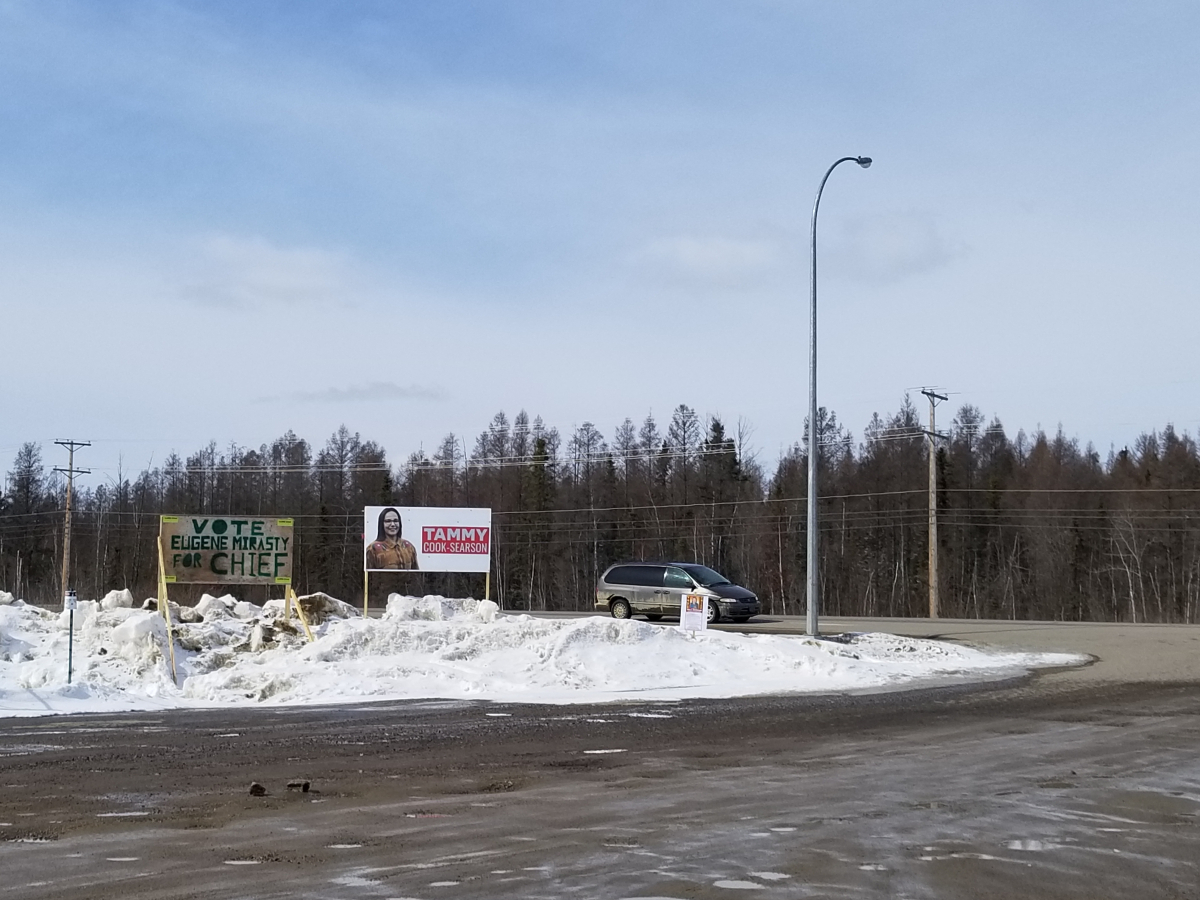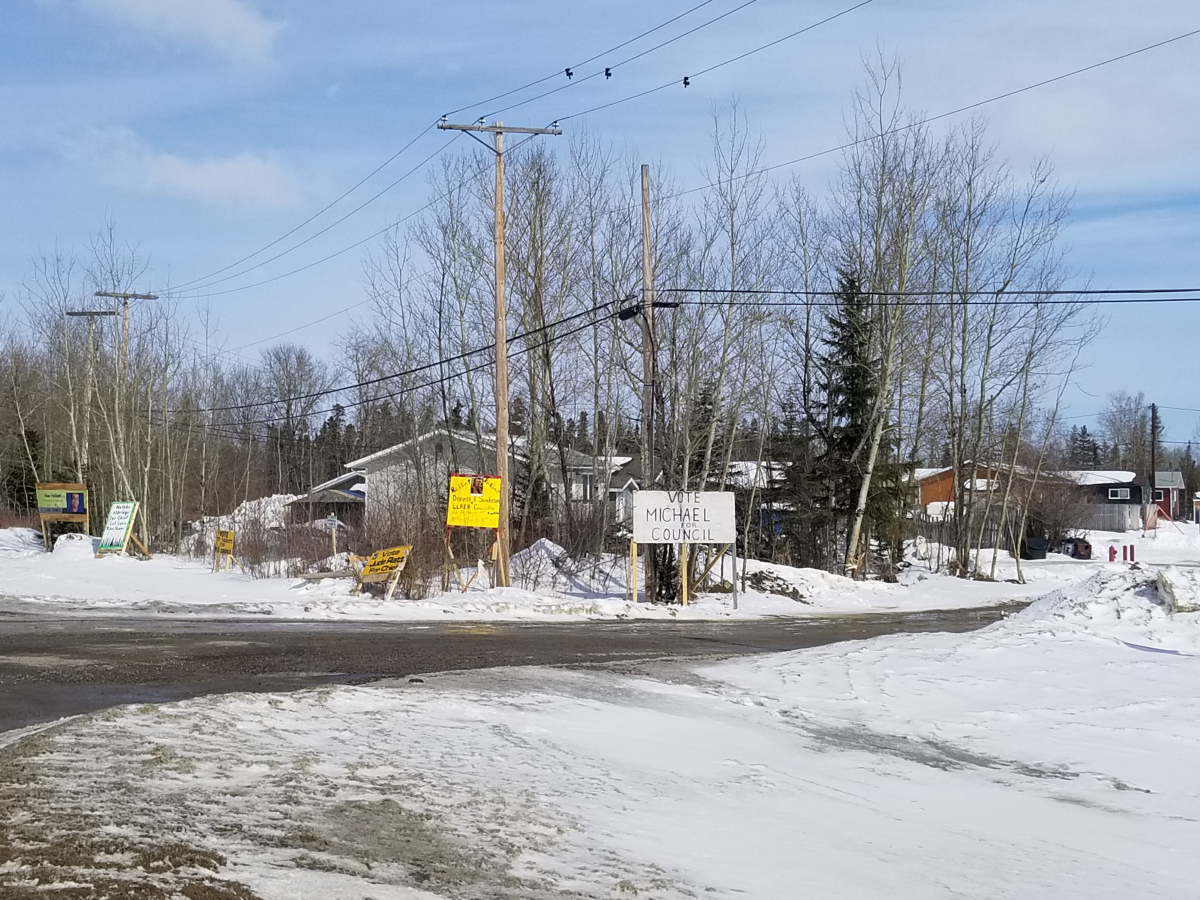Support strong Canadian climate journalism for 2025
The Lac La Ronge Indian Band announced it is postponing council elections in an unprecedented move to combat the COVID-19 pandemic.
The council’s term is now extended on an emergency basis until April 30.
Lac La Ronge Indian Band (LLRIB) is the largest First Nation in Saskatchewan, with an approximate population of 11,079 as of 2018.
“It’s postponed for now, so everything is on hold and once we get through the coronavirus COVID-19 pandemic, the election will resume with all the same candidates,” Chief Tammy Cook-Searson told National Observer.
An election tribunal oversees the band election.
“The Lac La Ronge Indian Band will continue to monitor COVID-19 developments and will make announcements regarding the rescheduling of the election as soon as possible” chief electoral officer Milton Burns said in a written statement on Wednesday.
Chief and council dissolved Feb. 28 and went into nominations March 2.
Cook-Searson said the tribunal was overseeing the election when everything changed because of the global pandemic. “From March 12, we were out campaigning and things were rapidly changing,” she said.

Advanced polling scheduled for earlier this month was cancelled by the elections tribunal and the postponement didn’t come as a surprise.
“They were monitoring the situation daily and at the end of the day, they felt that they could not continue with the election with the COVID-19 pandemic and to ensure the health and safety of the community members,” Cook-Searson said.
Staff and community members activated a pandemic plan through the band’s emergency management co-ordinator.
Cook-Searson spent Friday morning in meetings with the emergency control group that includes the six communities of La Ronge, Sucker River, Stanley Mission, Grandmother’s Bay, Morin Lake and Little Red River.
She packed hampers of essentials for band members who are self isolating and is making door-to-door deliveries with workers on Saturday.
One of the band’s top priorities is making sure essentials like food and medicines are delivered to members who are self-isolating.
“People are definitely worried. People want to know that if they have to self-isolate, somebody’s going to be there to bring their medicine, to bring their food and all their basic needs,” Cook-Searson said.
“And then, of course, there’s all different needs that are going to come up, so we’ll try our best to help out where we can and do what we can.”
Candidates for the council elections are now joining in the effort to support their communities in responding to the crisis.

“There are 37 of us running in the election. While we were candidates, we weren’t part of the planning of the emergency management group” Cook-Searson said.
“We know that we have to work together and we have to collaborate in order for us to get past the pandemic that we’re going through with the coronavirus, COVID-19,” she said.
The band has taken steps, such as distributing important health information door-to-door and making announcements on the radio in Cree and English.
They are considering their own emergency text message service, like the ones provincial and federal governments now use to advise citizens during emergencies.
Other communities in northern Saskatchewan have started limiting access to non-residents. The option remains on the table and is being considered, but has not been adopted by the Lac La Ronge.
“Some of the communities have started monitoring the traffic going in and out. We were talking about how we might even close incoming traffic from people that do not reside in the community,” Cook-Searson said.
“Just to have the local people in the community that can go in and out, but not people that don’t live in that community.”
To date, there are no confirmed cases of COVID-19 among Lac La Ronge Indian Band members.
“There’s different issues that come up, but I know it's rapidly changing, not only in our communities but globally,” she said.
Cook-Searson noted there are band members with family abroad, too.
“We continue to monitor what the federal government is doing, the provincial government and also FSIN (Federation of Sovereign Indigenous Nations) and the Prince Albert Grand Council,” she said.
Cook-Searson said it’s vital to follow health authority recommendations, such as self-isolating, washing hands and not gathering in groups, in the meantime.
She hopes Canadians and the international community will work together to stop the pandemic.
“We’re all interconnected and we just have to make sure that we try and flatten the curve. Working together is the only way we can help keep our families, elders, community members from getting sick. With patience and co-operation we can all do our part.”






Comments